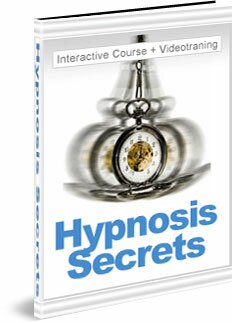Here’s an interesting interview with Tim Ferris, author of the 4 Hour Work Week, 4 Hour Body and 4 Hour Chef.
The 5%
You know what they say about the 5% who seem to live on top of the world, right? How did they get there? By doing things 95% of the people weren’t willing to do. And the same is pretty much true for Tim Ferris: One of the things that’s interesting is what he said about the writing of his new book 4 Hour Chef: “I think it took five biological years of my life in the year and a half that I did it.” Being able to deal with pressure and stress is a crucial skill to have in life.
Tim Ferris On Marketing
He recommends that you read three things to really understand what marketing is about:
- 1000 True Fans by Kevin Kelly (short piece)
- The Truth About Social Media Marketing (Tim O’Reilly)
- 22 Immutable Laws of Marketing
Thinking Clearly
Want to be a sharper thinker? Writing helps. Do short writing exercises and have someone edit it. The person who edits your writing doesn’t have to be a great writer, but they have to be a great thinker. Lawyers for example make great editors, because they can help you to get rid of all the fluffy language.
Writing Better
If you want to take your writing skills to the next level, read:
- On Writing Well
-
Bird By Bird
For the psychological aspects -
Letters To A Fiction Writer
Even if you’re not a fiction writer.
Paul Bronson once gave him advice on writing when he’s experiencing writers’ block: “Write about what makes you angry.”
Why does this work?
Because when you write about things that bother you, you address things that are common to other people.
People Tim Ferris Admires
On top of the list is Richard Feynman (and if you haven’t read Surely You’re Joking, Mr Feynman yet, then you should drop everything and get this book into your hands right now). Especially for his teaching skills.
Ben Franklin, because he demonstrated the power of the amateur. This led Tim to make an interesting statement, where he said that…
The era of the polymaths isn’t over
It’s just that people are told that they have to specialize like insects, and then that’s what they do. As a recent example for a polymath he mentions Ken Block, the rally-driver, skateboarder, snowboarder, motocrosser and co-founder of DC Shoes.
Ray Kurzweil another example of a polymath: music synthesizers, prediction of technology developments, artificial intelligence.
Advice For Startup Founders & Authors
Scratch your own itch. Write the book you can’t find that you want to read. Build the product that you want, that you currently can’t find.
How To Deal With Haters & Critics
Some people will dislike what you say when you have a strong opinion. He wrote more about it here. His advice when someone attacks you online?Do not engage. Starve it of oxygen. Don’t give it any response. The internet gives everyone a voice – both geniuses and idiots.
He mentions this quote has really helped him to deal with critics:
“It is not the critic who counts: not the man who points out how the strong man stumbles or where the doer of deeds could have done better. The credit belongs to the man who is actually in the arena, whose face is marred by dust and sweat and blood, who strives valiantly, who errs and comes up short again and again, because there is no effort without error or shortcoming, but who knows the great enthusiasms, the great devotions, who spends himself for a worthy cause; who, at the best, knows, in the end, the triumph of high achievement, and who, at the worst, if he fails, at least he fails while daring greatly, so that his place shall never be with those cold and timid souls who knew neither victory nor defeat.”
Theodore Roosevelt, Citizenship in a Republic, Speech at the Sorbonne, Paris, April 23, 1910
Philosophy = Operating System For Life
Philosophy is a framework that helps you make decisions about what you should do and should not do. Stoicism (specifically Seneca, Letter From A Stoic) is the ideal operating system for entrepreneurs and people who want to thrive in high stress & high-pressure environments.
Anger is like acid in a vessel. It damages the vessel more than the thing it finally gets poured over. (So stop carrying anger inside yourself.)
What’s Tim’s advice if you are…
Feeling Stuck? Not Getting Where You Want To Be In Life?
It’s good to have both – a place of gratitude, that keeps you from rushing into things, and to be driven to do something.
Do a gratitude list: 3 things you are grateful for. First thing when you wake up, and last thing before you go to bed. Make that a daily ritual.
Do this twice a month:
- 80/20 analysis: 20% of activities and people that are producing 80% of the results and positive emotional states that you want. (And do the same with problems and negative emotional states so you can change those too!). Do this on a piece of paper, it takes around 15 minutes. Then do a to-do list based on that.
- Fear setting: Why you haven’t done the most important to-do / have done the most important not-to-do. Define your fear very clearly. Take a piece of paper and divide it into three columns.
Column 1: write down all of the worst things that could happen in great detail. E.g. not be able to pay your mortgage. And then you’d have to do A, B and C.
In the 2nd column, write down all the things you can do to minimize the risk of those things happening.
3rd column: identify all the things you could do to get back to where you are now if it happened.
What is Risk? The potential for an irreversible negative outcome.
Being effective (doing the right things) is more important than being efficient (doing things well).
What Makes A Great Founder?
Tim looks for people who have done something extremely high-stress before where failure is constant (e.g. sports, previous startups, sales). Somethings where they are accustomed to facing rejection or failure on a small or a large scale almost every day. -> Resiliency. Being able to deal with the pressure and stress.
The beer-test: Would you actually want to go out and have a beer with that person.
A basic understanding of the basics of work. Having a keen understanding of the competitive landscape. A clearly defined problem, and a very clearly defined customer.
On Negotiating
Books he recommends:
Watch Shark Tank.
And practice. You have to practice. It’s like boxing. You can practice your punches, but if you get in the ring and somebody hits you on the nose, it’s a completely different game.

